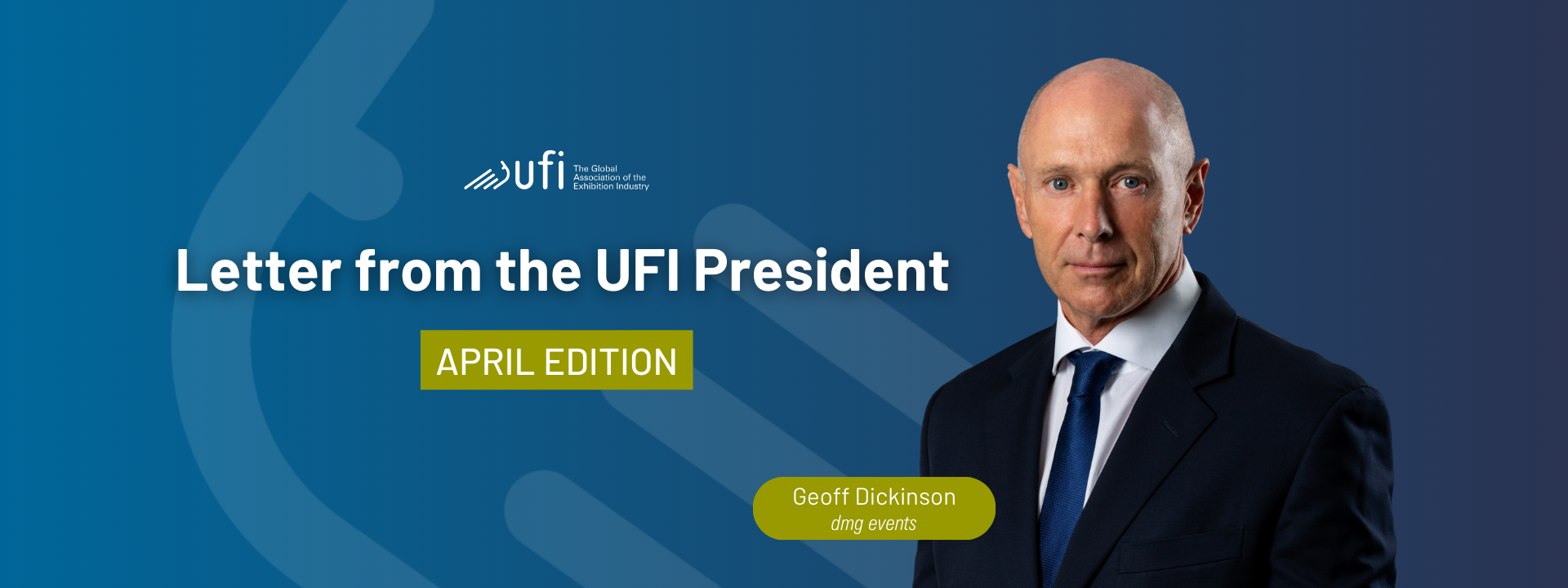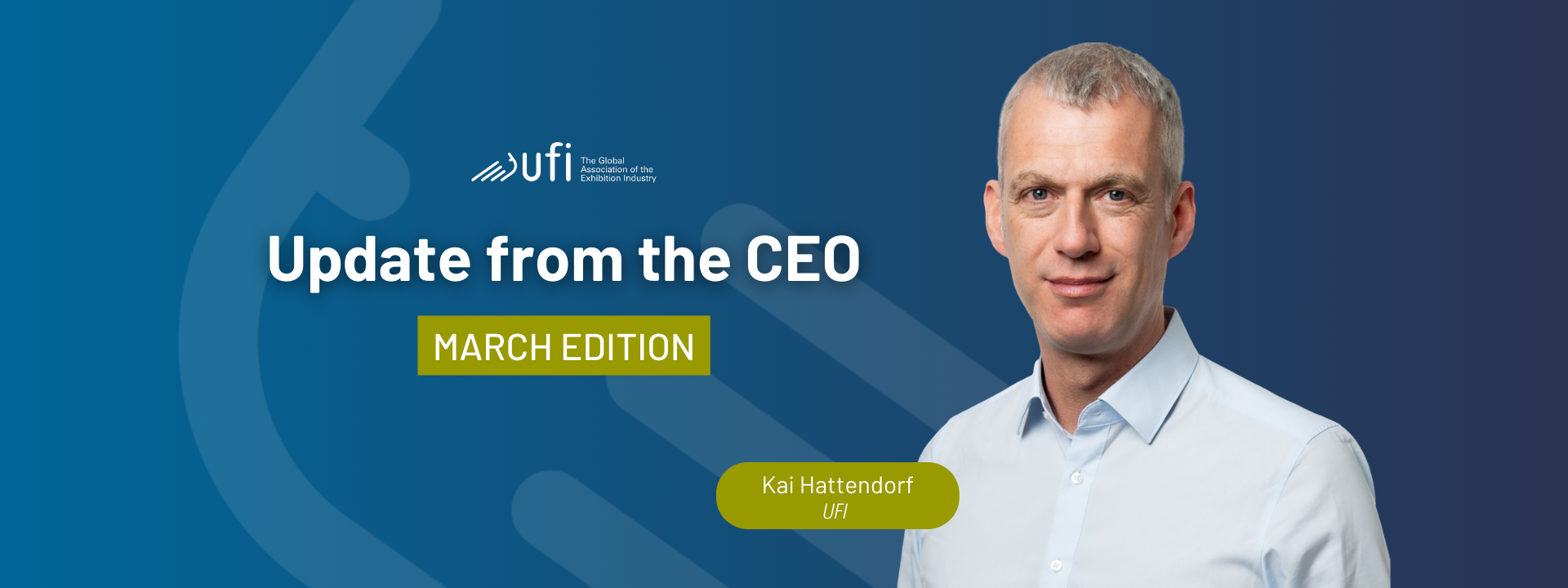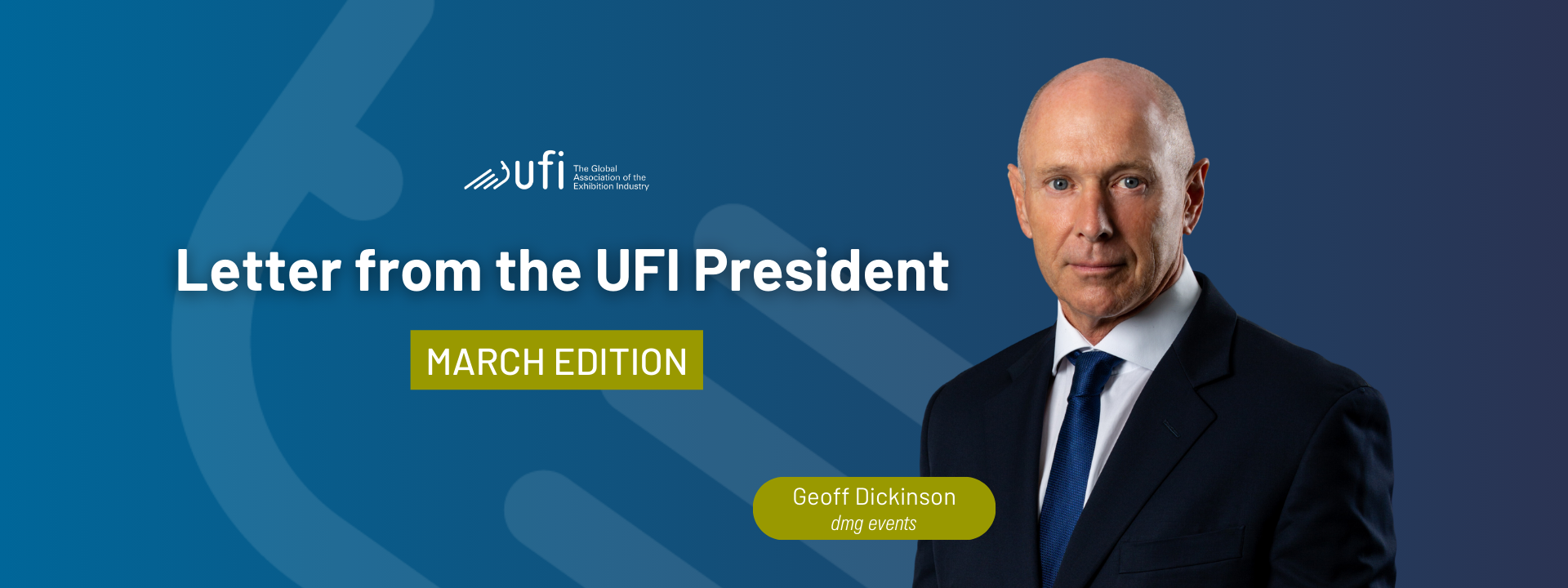Posted by
Barry Siskind
UFI’s Community Manager
Magnus Lindkvist is an internationally recognized author and speaker. He is also the opening speaker at UFI’s Congress in Seoul, Korea. Magnus has written three books; “Everything We Know Is Wrong”, “The Attack of the Unexpected” and “When The Future Begins” and based on his years of research will challenge our way of thinking about the future.
In advance of UFI’s Seoul Congress on November 13 – 16, I caught up with Magnus to ask him a few questions about his presentation. Here is what we spoke about:
Barry:
In the description of your address you use the phrase, “Positive unexpected states we encounter.” Will you please expand on this?
Magnus:
After the past decade (named the decade from hell by Time magazine), I have found that people in general have no problem imagining what new horrors and nasty surprises lie ahead, yet business, science and life itself is often driven by positive accidents. Think of Penicillin, or meeting the love of your life. These are not planned events but acts of serendipity. And, what better format to create an atmosphere for serendipity than exhibitions and events.
Barry:
Is there a risk that thinking or worrying about the future could have a negative impact on what we as businesses and people can accomplish in the present?
Magnus:
The smart approach is to be a pessimist, yet there are also studies showing that optimistic thoughts about the future tend to lead to a higher level of wellbeing. In other words, do you want to seem smart or feel happy? In a business context, most people I meet today operate in “survival mode” and plan only a year or so ahead in time. I would rather that the business world all turned pessimistic right now because that would, at least, mean there was some future-thinking going on.
Barry:
What are the risks?
Magnus:
Inherent risks are everywhere. When we ridicule historical figures for belittling computers or turning down The Beatles, we forget that for all successful bands and technologies, there are hundreds of also-rans. In other words, the challenge isn’t so much to anticipate change (a constant, chaotic force) but to make sure that our failures (of anticipation and execution) don’t kill the company.
If you haven’t already registered to attend congress there is still time. Check out the entire agenda by visiting: www.ufi.org.seoul2013
Trendsetter Magnus Lindkvist to open this year’s Congress in Seoul, Korea
Posted by
Barry Siskind
UFI’s Community Manager
Magnus Lindkvist is an internationally recognized author and speaker. He is also the opening speaker at UFI’s Congress in Seoul, Korea. Magnus has written three books; “Everything We Know Is Wrong”, “The Attack of the Unexpected” and “When The Future Begins” and based on his years of research will challenge our way of thinking about the future.
In advance of UFI’s Seoul Congress on November 13 – 16, I caught up with Magnus to ask him a few questions about his presentation. Here is what we spoke about:
Barry:
In the description of your address you use the phrase, “Positive unexpected states we encounter.” Will you please expand on this?
Magnus:
After the past decade (named the decade from hell by Time magazine), I have found that people in general have no problem imagining what new horrors and nasty surprises lie ahead, yet business, science and life itself is often driven by positive accidents. Think of Penicillin, or meeting the love of your life. These are not planned events but acts of serendipity. And, what better format to create an atmosphere for serendipity than exhibitions and events.
Barry:
Is there a risk that thinking or worrying about the future could have a negative impact on what we as businesses and people can accomplish in the present?
Magnus:
The smart approach is to be a pessimist, yet there are also studies showing that optimistic thoughts about the future tend to lead to a higher level of wellbeing. In other words, do you want to seem smart or feel happy? In a business context, most people I meet today operate in “survival mode” and plan only a year or so ahead in time. I would rather that the business world all turned pessimistic right now because that would, at least, mean there was some future-thinking going on.
Barry:
What are the risks?
Magnus:
Inherent risks are everywhere. When we ridicule historical figures for belittling computers or turning down The Beatles, we forget that for all successful bands and technologies, there are hundreds of also-rans. In other words, the challenge isn’t so much to anticipate change (a constant, chaotic force) but to make sure that our failures (of anticipation and execution) don’t kill the company.
If you haven’t already registered to attend congress there is still time. Check out the entire agenda by visiting: www.ufi.org.seoul2013






Leave A Comment